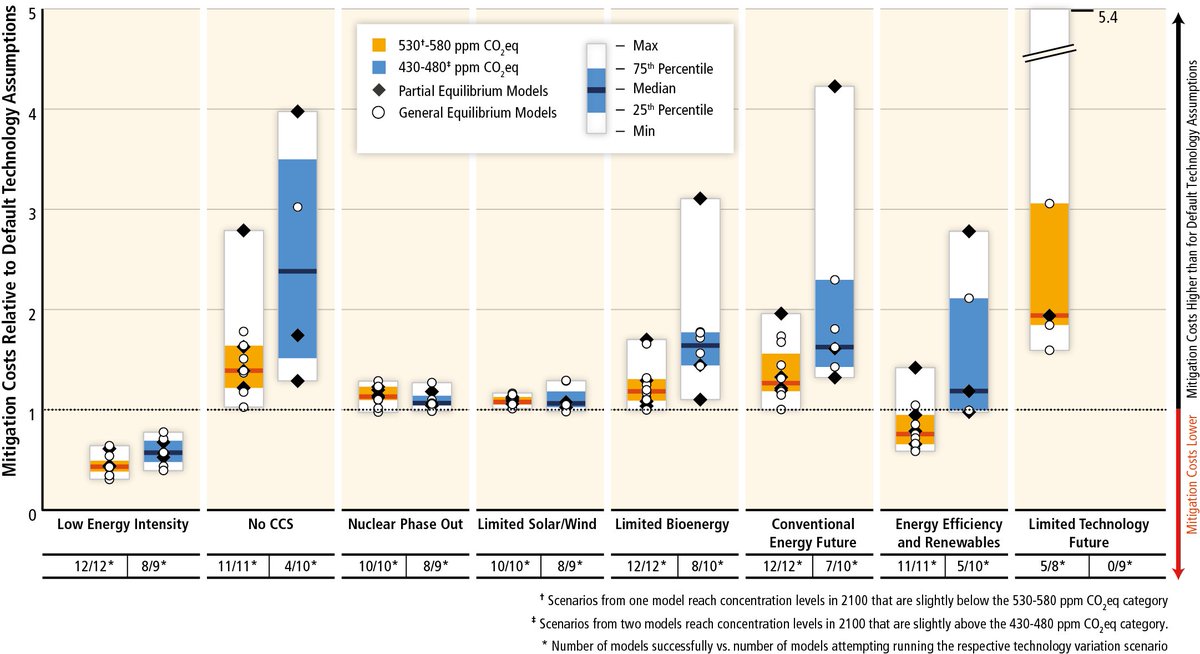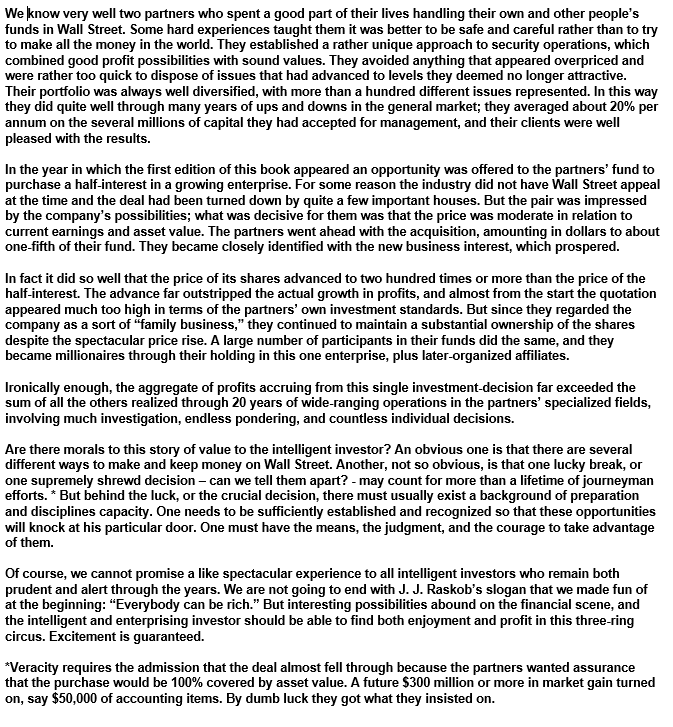1. Oil & gas companies still expect the world to consume large quantities of oil & gas in 2050. That view would seem to put the oil giants in conflict with the IPCC.
𝐈𝐧 𝐟𝐚𝐜𝐭, 𝐭𝐡𝐞 𝐨𝐩𝐩𝐨𝐬𝐢𝐭𝐞 𝐢𝐬 𝐨𝐟𝐭𝐞𝐧 𝐭𝐫𝐮𝐞...
@bstorrow
"It's just an element, a tool to explore different trajectories on the basis of the knowledge we have today & to see what ... might encounter."
Both critics & modelers agree such nuance is often lost
BP projected BECCS would reduce emissions by 1.5GtCO₂/yr in 2050.
Equinor didn't even model BECCS because it said the technology's future was too uncertain.
The IPCC sees BECCS capturing 3-7GtCO₂/yr in 2050
The pathways the models produce aren't necessarily the only ones possible. Most of the time, they're just the cheapest.
𝐖𝐡𝐚𝐭 𝐚𝐫𝐞 𝐈𝐀𝐌𝐬 𝐦𝐨𝐝𝐞𝐥𝐥𝐢𝐧𝐠?
What is cost-effective? We assume that this means discounting & optimising costs over the 100 years, assuming everything runs perfectly smoothly & everyone behaves, & we know everything (like costs).
The world is not this nice, unfortunately...
They could not model the cost effectiveness of this pathway. Is it cheaper or more expensive than a BECCS pathway? We don't know!
https://t.co/XnBaB1JDWZ
It is hard to trade-off supply-side & demand-side costs. This means we only estimate cost-effective on supply-side.
https://t.co/9lfUSFm8sp
https://t.co/WALF1IPZ9L

Is cost-effective, as defined in an IAM, the same as the real-world definition of cost-effective?
This is the question we need to address...
More from Economy
One of the hardest problems post-pandemic will be how to revive so-called "left behind" places.
Post-industrial towns, run-down suburbs, coastal communities - these places were already struggling before the crisis and have fared worst in the last year.
What should we do?
Today, @ukonward sets out the beginning of a plan to repair our social fabric. It follows our extensive research over the last year, expertly chaired by @jamesosh, and funded by @jrf_uk, @Shelter and @peoplesbiz.
https://t.co/d3T5uPwG9N

Before I get into recommendations, some findings from previous Onward research.
In 2018, we found 71% of people believe "community has declined in my lifetime"
In 2019, we found 65% would rather live in “a society that focuses on giving people more security” vs 35% for freedom

This was the basis for our identification of 'Workington Man' as the archetypal swing voter in 2019, and led us to predict (correctly) that large numbers of Red Wall seats could fall. A key driver was a desire for security, belonging and pride in place.

There is also a key regional dimension to this. We also tested people's affinity with the UK's direction of travel, across both cultural and economic dimensions - revealing the extraordinary spread below: London vs. the Rest.
https://t.co/HrorW4xaLp

Post-industrial towns, run-down suburbs, coastal communities - these places were already struggling before the crisis and have fared worst in the last year.
What should we do?
Today, @ukonward sets out the beginning of a plan to repair our social fabric. It follows our extensive research over the last year, expertly chaired by @jamesosh, and funded by @jrf_uk, @Shelter and @peoplesbiz.
https://t.co/d3T5uPwG9N

Before I get into recommendations, some findings from previous Onward research.
In 2018, we found 71% of people believe "community has declined in my lifetime"
In 2019, we found 65% would rather live in “a society that focuses on giving people more security” vs 35% for freedom

This was the basis for our identification of 'Workington Man' as the archetypal swing voter in 2019, and led us to predict (correctly) that large numbers of Red Wall seats could fall. A key driver was a desire for security, belonging and pride in place.

There is also a key regional dimension to this. We also tested people's affinity with the UK's direction of travel, across both cultural and economic dimensions - revealing the extraordinary spread below: London vs. the Rest.
https://t.co/HrorW4xaLp














